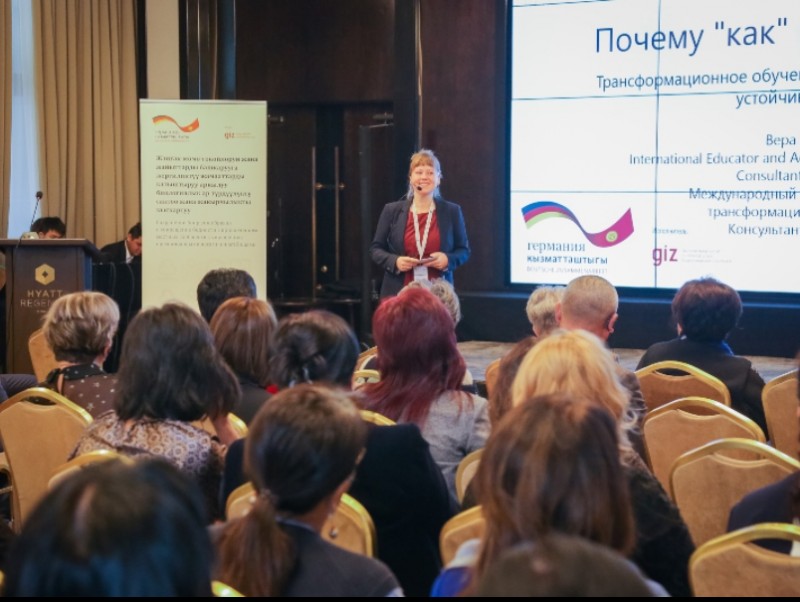
The event brought together 150 participants from Kyrgyzstan, Kazakhstan and Uzbekistan. Teachers of schools and universities, practising the concept and principles of Education for Sustainable Development (ESD), representatives of regional Ministries of Education and Science, embassies of Germany in KR and Estonia in Central Asia, UNDP, UNESCO, GIZ, civil sector, experts from Germany, Mongolia and Thailand met on the same platform.
Education for Sustainable Development (ESD) is included in Education 2030 under Sustainable Development Goal 4: Quality Education. As stated in Education for Sustainable Development Goals: Learning Goals, the implementation of SDG 4 and the rest of the SDGs requires addressing the target: "by 2030, ensure all learners acquire knowledge and skills needed to promote sustainable development, including among others through education for sustainable development and sustainable lifestyles, human rights, gender equality, promotion of a culture of peace and non-violence, global citizenship, and recognition of cultural diversity and of culture’s contribution to sustainable development.”
During the welcoming session, the presenters identified ESD as an integral part of quality education, which is a priority for all countries in the region. Representatives of the Ministry of Education and Science of the Kyrgyz Republic, referring to the latest ERT research, noted the need to develop among students "the ability to act in different situations using their knowledge, conduct innovative research projects, share values of human rights and freedoms, learn skills to find themselves in life and in the labour market.”
The distinguished guests stressed the importance of ESD in making school children aware of how world phenomena and events - climate change, natural resource depletion, over-consumption - affect their present lives. As Magnus Magnusson, UNESCO Head (Almaty) said, “being educated on sustainability issues means thinking here and now about what one is doing for the future generation and planning one's behaviour for the sustainability of our fragile world.”
In Kyrgyzstan, projects on ESD in the educational system of the country are implemented by Deutsche Gesellschaft für Internationale Zusammenarbeit (GIZ) GmbH (German Society for International Cooperation) together with the CAMP Alatoo Public Foundation and UNESCO with support of the German Federal Ministry of Economic Cooperation and Development (BMZ) and the Estonian Government. The initiatives aim to train teachers in schools, universities and teacher trainers, develop educational materials for schools and integrate ESD courses into teacher training programmes.
The relevance of this work was highlighted in the welcoming speech by Olga Bryzgalova from the MoES, who said that "ESD allows to gradually introduce topics and teaching methods that help change the way of thinking and behavior of both teachers and students. We need to learn modern teaching approaches and to use information and communication technologies to build cross-sectoral competencies and flexible skills of students.”
Kyrgyzstan and the countries of the region are only taking the first steps in this direction, however, the Estonian educational system has been oriented towards ESD for the last 20 years. According to the Estonian Ambassador to Central Asia, Toomas Tiers, sustainable development is “a theme of love and care for our nature, which is understandable to all people and especially to children.” He expressed the hope that teaching aids and videos on ESD, published and developed with the support of international projects for school teachers, will be recommended for use in lessons by relevant educational structures in CA countries.
One manual was presented to participants during the conference. The manual "Education for Sustainable Development and Biodiversity Conservation" was prepared for biology and geography teachers in grades 6-11 with the support of the Kyrgyz-German Nut Tree and Grassland Conservation Project. According to Edith Koshkin, the head of the project, the history of the manual started with the idea of caring activists in Jalal-Abad province for children to learn more about the nature of their native land. "Our partners were concerned that children living near the forest do not know it from the inside, do not know how it grows and develops. Therefore, we decided to prepare educational material focusing on the ecology, climate, forests and pastures of Kyrgyzstan. And we didn't think that a training course for teacher training would grow out of a manual for extracurricular activities," said Edith Koshkin.
The conference organizers handed over certificates of merit and commemorative prizes to the specialists from institutes of advanced training who teach their colleagues the ESD approach based on the materials of this manual and materials of the school teachers-practitioners . To date, 443 educators throughout the country have received knowledge of ESD in biodiversity conservation and sustainable management of natural resources, who, in turn, have taught more than 20,000 schoolchildren and students. Educational institutions, such as the Republican Institute for Advanced Studies and Retraining of Pedagogical Workers under the Ministry of Education and Science of the Kyrgyz Republic, KSU named after Arabaev I. and Osh State University have introduced ESD into their curricula.
During interactive plenary sessions, general discussions and workshops, conference participants discussed the challenges of sustainable development, including natural resource management, climate change, loss of biodiversity, conflicts, various forms of discrimination and the crucial role of education as an effective tool for achieving the SDGs, strengthened professional cooperation and exchanged practical experiences.
Summing up the two days of lively communication, the participants of the event agreed that ESD needs to be promoted at the national level in Central Asia, acting within the framework of the roadmap proposed by the international partners. It was noted that the level of training and the number of teachers applying ESD in their lessons varies in each country of the region and therefore, teachers need support in terms of gaining experience, developing mentoring and coaching, including ESD topics in subject standards, etc.
The inclusion of ESD in the education system, even if not yet in every school and in every higher education institution, gave educators hope that the actions and plans announced at the conference would not remain just words.
The event was organised by GIZ and UNESCO in partnership with the Ministry of Education and Science, with support from the German Federal Ministry for Economic Cooperation and Development (BMZ) and the Estonian government, as well as representatives of the civil society sector - CAMP Alatoo PF and EdNet Agency.
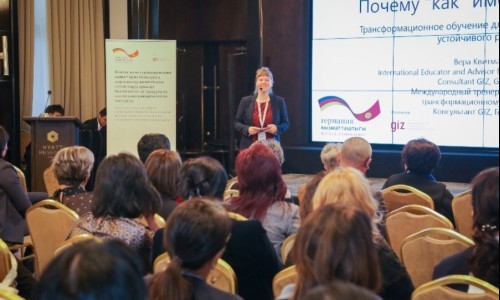

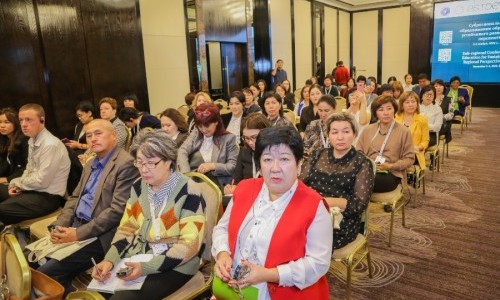
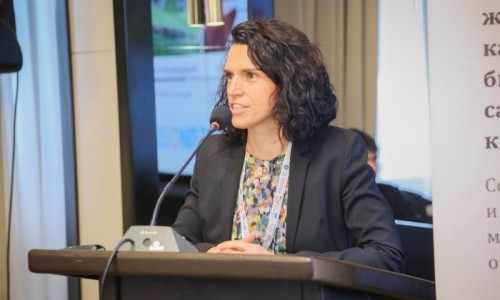
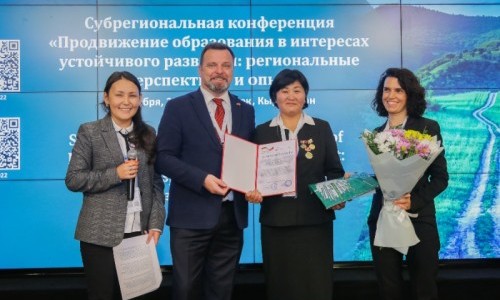
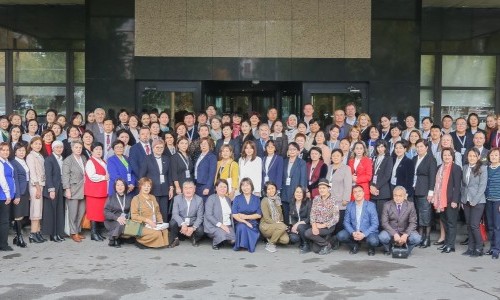
Итоги пастбищного сезона 2018 года были подведены на очередном заседании районной пастбищной комиссии (РПК).
MoreThe development of the unified method, "Monitoring Pastures at the Local Level," is nearing completion.
MoreЧетыре новых моста построены в 2018 году в Кыргызстане при поддержке ОФ “CAMP Алатоо” и Швейцарской ассоциации “Памирские...
More